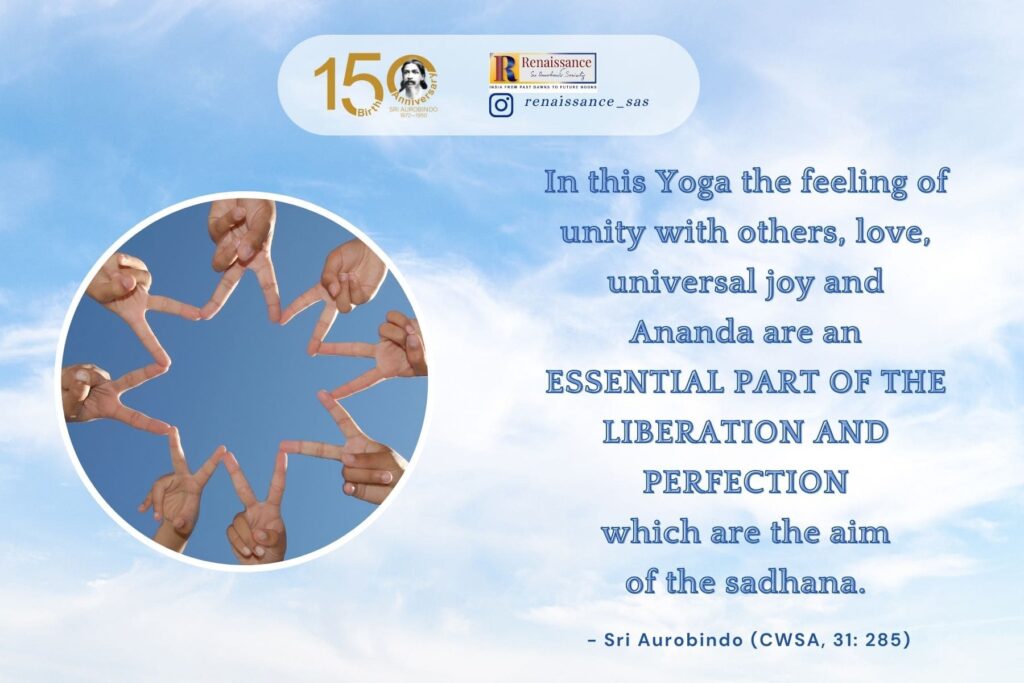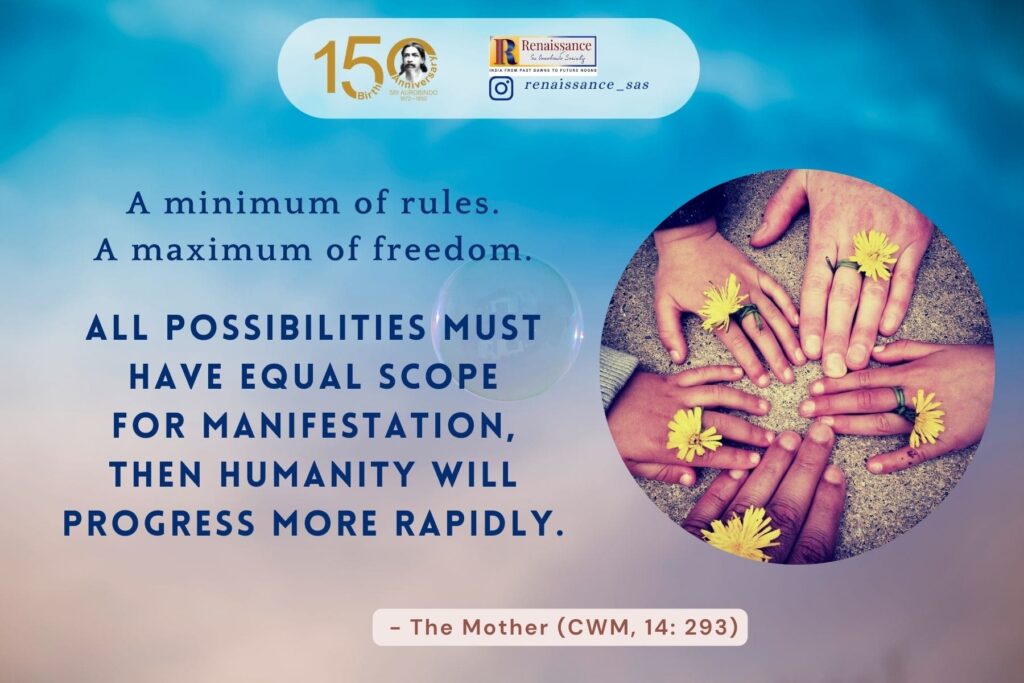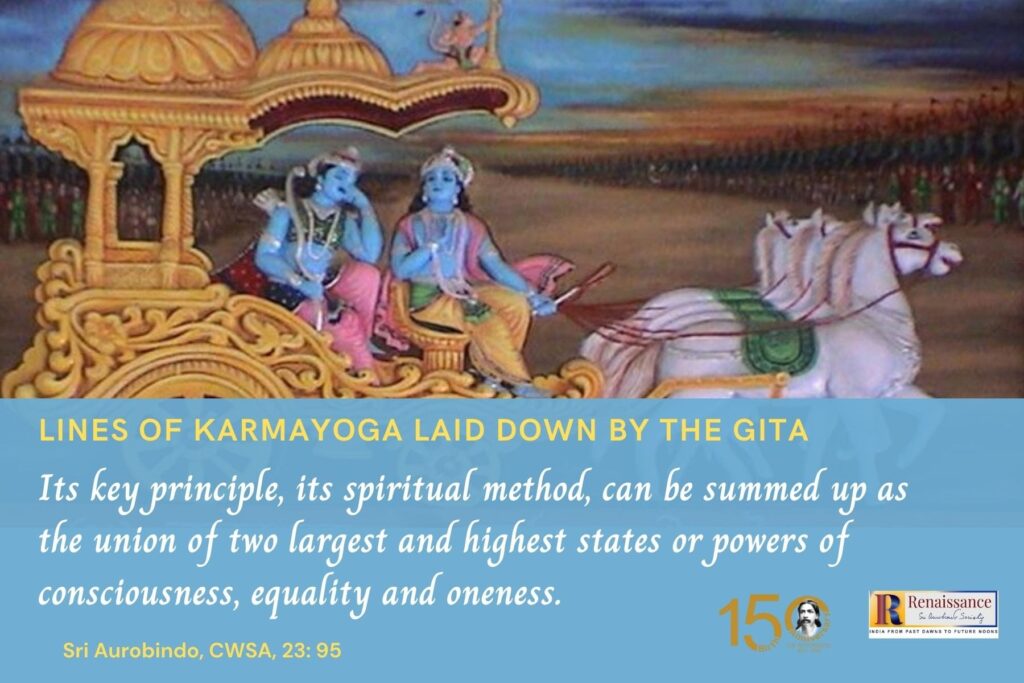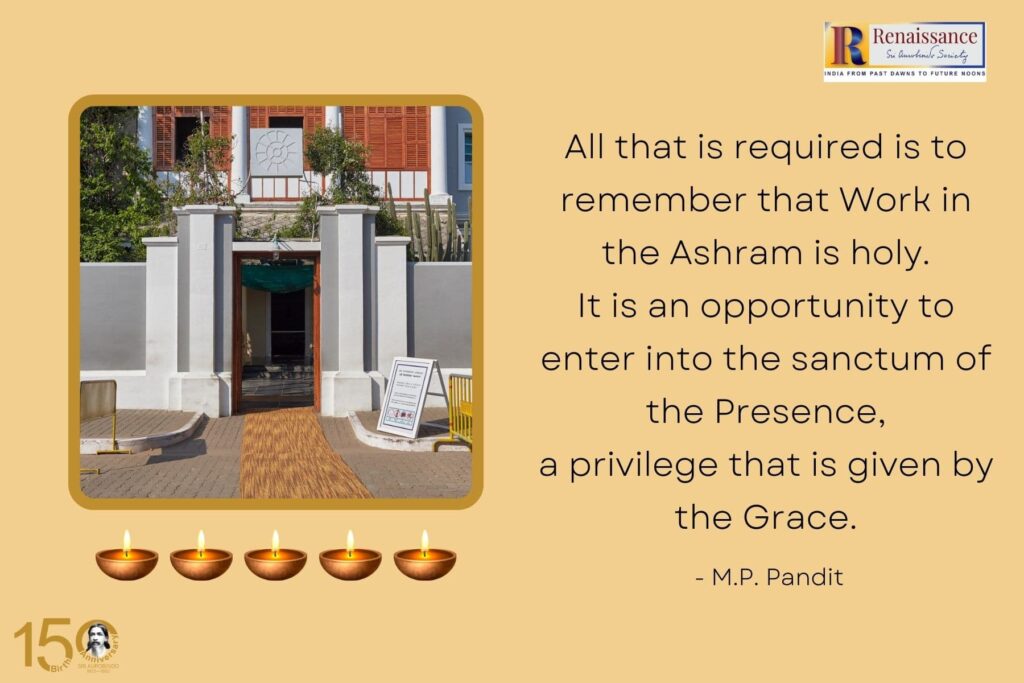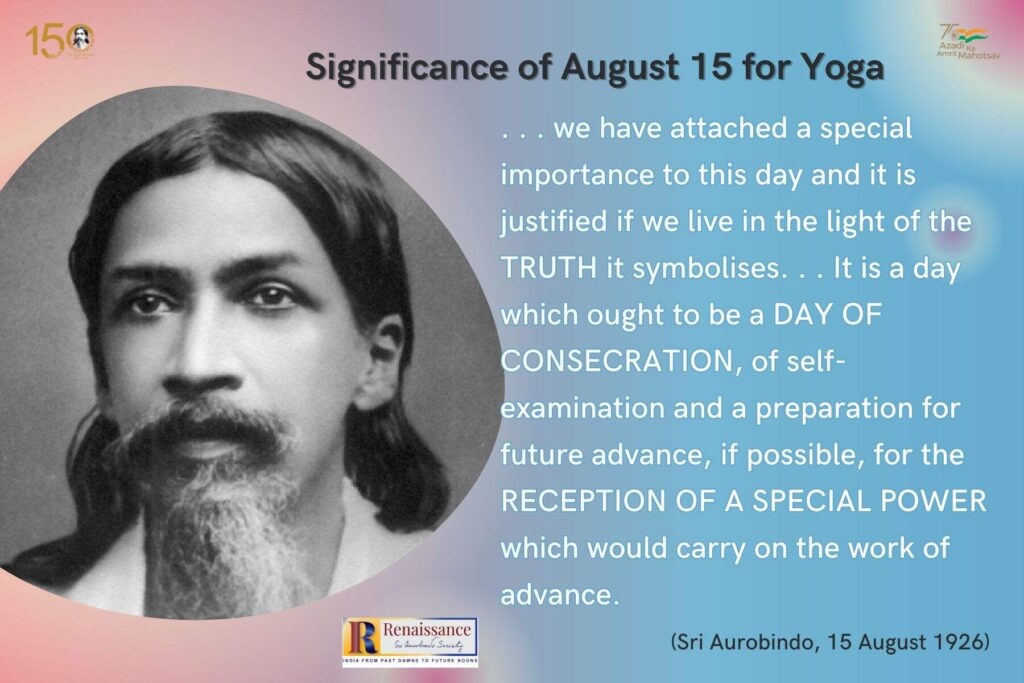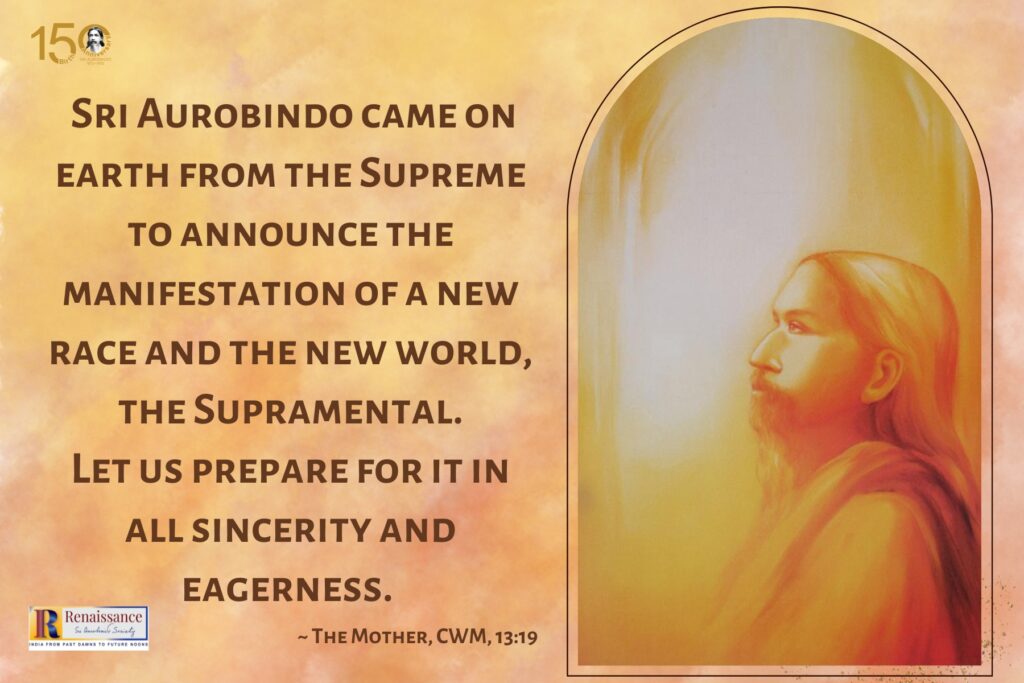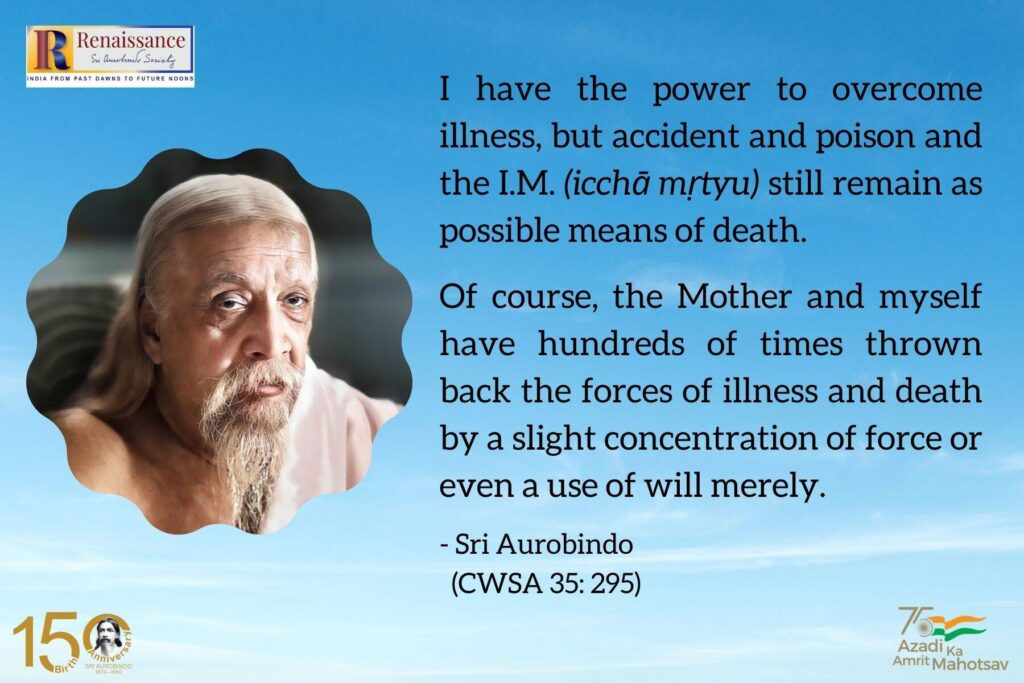Sri Aurobindo on Family Relations in Yoga
Sri Aurobindo elucidates that one of the aims in Integral Yoga is to purify and transform the usual egoistic human love into a purer love towards the Divine at all levels of the being. He also explains that after one enters the spiritual life, the relationship with the Divine take precedence over the ordinary social relations. Either the family relations naturally fall off or become the ground for karmayoga based on the soul’s need.
Sri Aurobindo on Family Relations in Yoga Read More »

